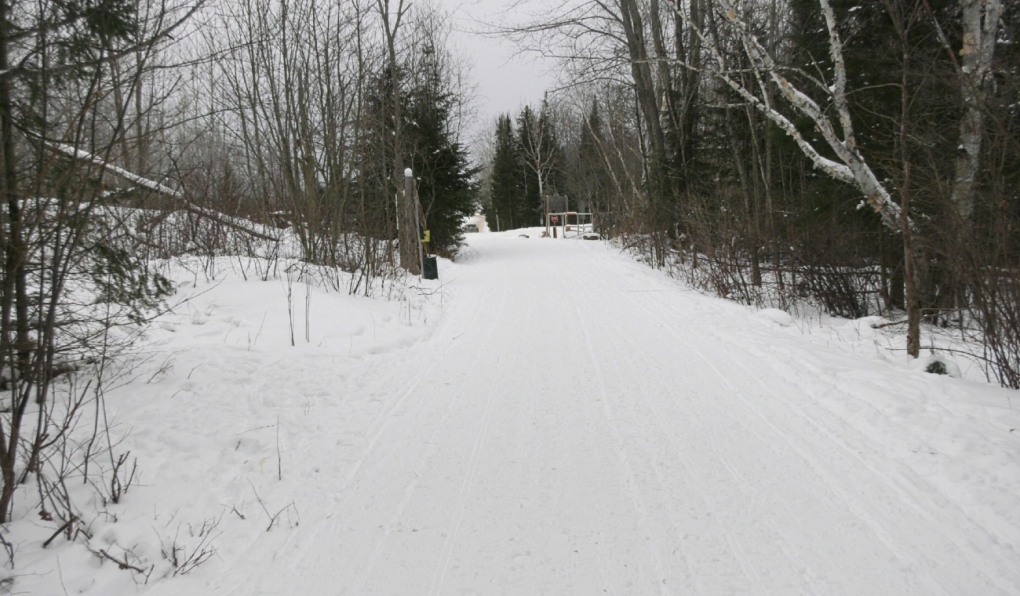On 'Blue Monday,’ here are some ways to beat the winter doldrums
 Whether it’s going for a hike or just stepping outdoors for some fresh air, the Nature Conservancy of Canada is encouraging people to get outside to avoid the 'Blue Monday' feeling. (Jaime McKee/CTV News)
Whether it’s going for a hike or just stepping outdoors for some fresh air, the Nature Conservancy of Canada is encouraging people to get outside to avoid the 'Blue Monday' feeling. (Jaime McKee/CTV News)
Whether it’s going for a hike or just stepping outdoors for some fresh air, the Nature Conservancy of Canada is encouraging people to get outside to avoid the 'Blue Monday' feeling.
“Going outside is one of those ways to, if not curb some of those seasonal affective disorder feelings, it’s a way to at least interrupt them for a moment and breathe in some fresh air,” said Jensen Edwards, national media relations manager for the Nature Conservancy of Canada.
“By going outside and interacting with nature, you are departing from the stresses of day-to-day work, you’re also breathing in fresh air and seeing things beyond the confines of your own home.”
Local experts in the north told CTV News northerners often feel the effects of winter, and adapting to it is key to getting through the dark and cold days.
“When we’re in denial about it, we’re not going to adapt to it, so adapting is absolutely necessary,” said Natalie Lebel a registered psychotherapist and owner of Being Human: Psychotherapy and Consulting Services.
For those who don’t want to embrace the outdoors, Lebel said there are ways to avoid feeling depressed and anxious while staying inside.
“Doing things like crafts, knitting, organizing, because this is historically a time when we are supposed to be inside,” she said.
“Try to find things indoors that are going to keep you in the present.”
The Nature Conservancy of Canada said that since the pandemic began in March 2020, close to 40 per cent more people said they are spending more time outdoors.
CTVNews.ca Top Stories

Quebec man, 81, gets prison sentence after admitting to killing wife with Alzheimer's disease
An 81-year-old Quebec man has been sentenced to prison after admitting to killing his wife with Alzheimer's disease.
Pat King found guilty of mischief for role in 'Freedom Convoy'
Pat King, one of the most prominent figures of the 2022 'Freedom Convoy' in Ottawa, has been found guilty on five counts including mischief and disobeying a court order.
Canada's tax relief plan: Who gets a cheque?
The Canadian government has unveiled its plans for a sweeping GST/HST pause on select items during the holiday period. The day after the announcement, questions remain on how the whole thing will work.
Canada issues travel warning after 6 people die from tainted alcohol in Laos
The Canadian government is warning travellers following the deaths of at least six people in the mass poisoning of foreign tourists in Laos after drinking tainted alcohol.
BREAKING Jury convicts men of human smuggling in case of frozen migrant family in Manitoba
A jury has found two men guilty on all charges related to human smuggling in a case where a family from India froze to death in Manitoba while trying to walk across the Canada-U. S. border.
Canada's new income tax brackets in 2025: What you need to know
The Canada Revenue Agency has released updated federal income tax brackets for 2025, reflecting adjustments for inflation. Here’s the breakdown.
Measles outbreak: Canada sees highest number of cases in past nine years
Thirty new measles cases were reported this week in Canada, bringing the total number in Canada to 130 in 2024.
Food prices continue to outpace inflation in Canada
For the second straight month, grocery prices in Canada rose faster than the inflation rate, and beef in particular is significantly pricier than it was last year.
Unruly passenger duct-taped after trying to open a plane's door mid-flight
An assertive group of cross-country travellers pinned and duct-taped an unruly passenger mid-flight, after he allegedly tried to open a plane door at 30,000 feet.

































